My vacation time literally ended with the return flight from Bangkok to Vienna. The booking ticket contained a six-hour stay in the Western Chinese city of Urumqi. Wonderful, I thought. What others annoy about stopovers means kind of a bonus for me: I’m able to see a new corner of the world from above. In this case, nothing less than Tibet and the Taklamakan desert were on my flight schedule. I even had reasonable hopes for visiting the Chinese Uyghur capital spontaneously during my stopover and already marked the „South Mosque“ and the „International Bazaar“ with a golden star on Google Maps.
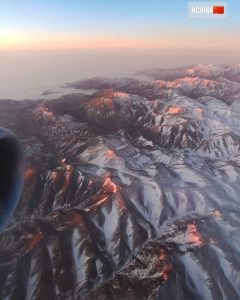
Open questions at the check-in counter in Bangkok
Bangkok Airport. Check in. Anyone wishing to enter the People’s Republic of China must apply for a Chinese visa in advance. But my hope for a quick city tour was based on the fact that I already had a stopover in Urumqi on my flight from Vienna to Bangkok – and to my big surprise I received a 24-hour entry visa on arrival in my passport just a few weeks ago. At some airports in China such as Chengdu or Shanghai, a visa-free entry into the neighboring city area is permitted – requiring a valid passport and a valid flight ticket to a third country within the next three days after arrival. Urumqi Airport is not on that list. Nevertheless, I got the green light from Chinese officials.
Of course I asked right away at the check-in counter of my airline „China Southern“ whether or not I could count on an entry permit to Urumqi. „I can’t tell“, the Chinese flight attendant replied. Her next statement was more depressing: „Your luggage is not going to be checked through in Urumqi.“ That must be a joke, I thought. As horrified as my tiredness allowed me to be at 2am after a long day on the beach in Ko Samui, I tried to point out the consequences if my backpack was not automatically loaded onto the next plane.
Questions. How can I get my luggage through the border authorities without a Chinese visa? I will continue my flight with the same airline – why can’t you just let it check through in Urumqi like a few weeks ago? And how should I communicate if nobody speaks English there? While I was revealing my skepticism, the flight attendant practiced „mianzi“, a traditional Chinese cultural interplay between one’s face and harmony with the social environment. So her answer was: „Don’t worry. Many people will take care of you there.“
As hopeless as it would have been to keep on asking, it didn’t make sense to worry about an arrival in seven hours as well. Once again, my Austrian „Let’s see“-mentality comes into play. I got on the plane and was happy about my window seat. A few hours later, at dawn, it was astonishing: endless plains of sand, dry river meanders and spectacular mountains adorn the landscapes of Western China. It’s a superhuman feeling of being able to see everything from above.
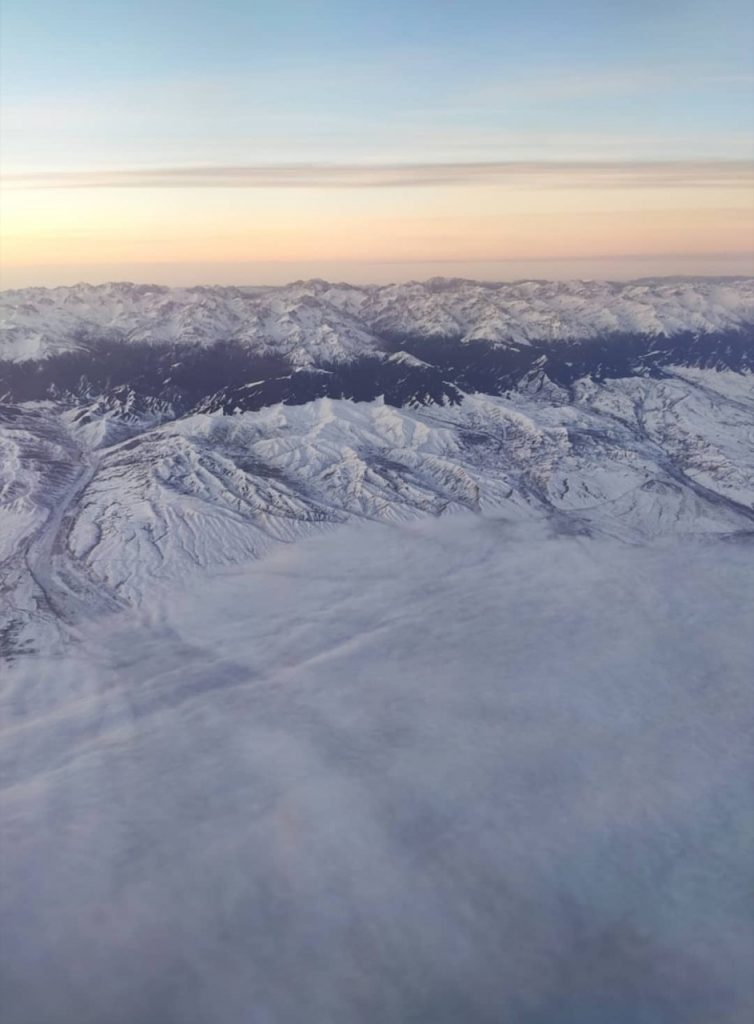
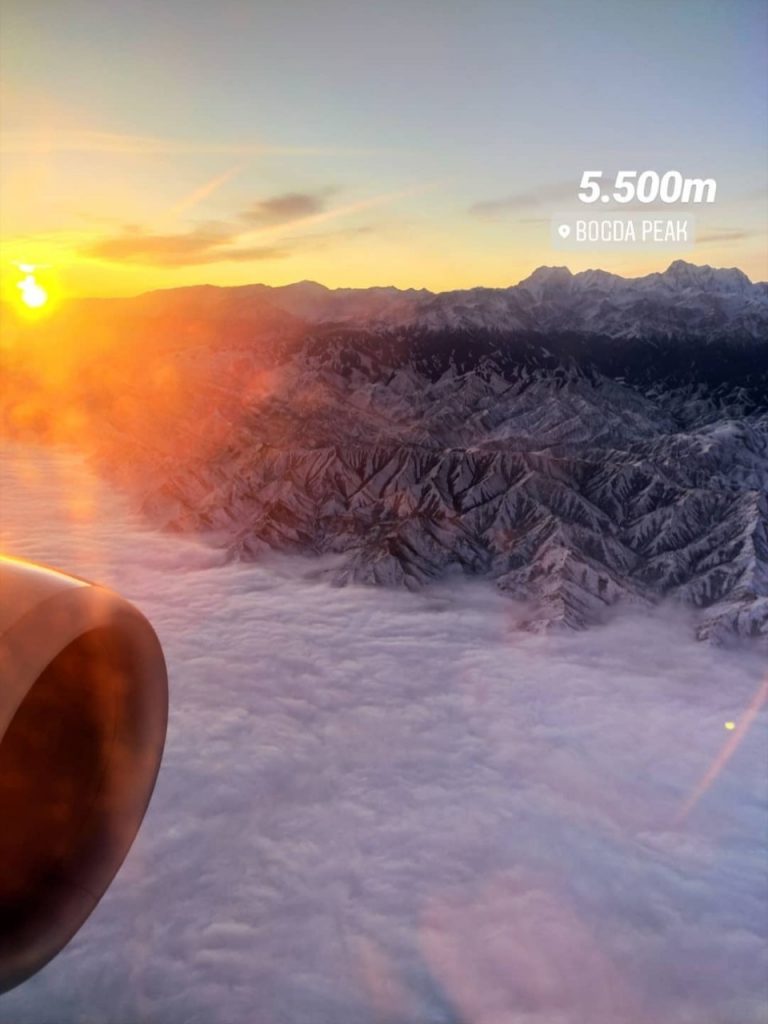
Cold welcome in China
Arrival in Urumqi. Cold welcome in China. The thermometer shows -17°C – for me a temperature drop of 50°C within a few hours. I’m approaching the passport control with a pen. Next to the most modern high-tech scanners there are old wooden tables for non-Chinese people where they have to fill out their immigration card. Even though I’m just a passenger in transit, I remember the chronological procedure from my first arrival at this airport: pocket and body scan, fill in the immigration card, passport control, entry stamp, turn at the corner, pocket and body scan again, and finally waiting in front of the gate.
The fact that this time my luggage will not be checked through should provide two logical options: Firstly, I get my one-day Chinese visa like a few weeks ago, grab my luggage and take a look at the city. Secondly, if I don’t get a visa on arrival, I’ll just grab my luggage, check it in and wait for the next six hours. And yes, I tried hard to avoid thinking about a troubling third option. But when I saw all the other passengers gathering in the huge waiting hall in front of the passport control, I noticed that I was the only foreigner of more than 250 passengers on board. That didn’t make my odds rise. Now, it was my turn.
Problems at Chinese passport control
Finger scan. Hand scan. Face scan. Then I put down my passport, immigration card and my flight reservation indicating the route Bangkok-Urumqi-Vienna on the counter of the border policeman. „You want to go to China“, said the Chinese policeman with a skeptical look and in poor English. „No. I’m flying straight away to Vienna“, I replied. My hope for a possible city tour was obviously already canceled. The officer nodded. „You want to go to China“, he repeated. „No. Vienna. Transit“, I replied slowly, „China, no. ” „Oh, you want to go to Austria?“, he asked. I nodded. He nodded. Finally he understood. But then: „You want to go to China.“ For the third time, again I put emphasis on „flight to Vienna“ and „transit“ and pointed my finger at my flight booking to Vienna. What followed was the inimitable „Oh, oh, oh“ of the Chinese officer, which is usually a sign to express understanding and approval.
But then he suddenly called a policeman, kept my passport and commanded to wait for a while in a small waiting area next to the border counter under police supervision. That didn’t bother me yet. Once I had a similar experience at the airport in Washington D.C. when a mistake occured in their digital system. The small waiting area was a half-room, only separated from the rest of the waiting hall by a 1.50m high partition wall. Since I had to wait now, I wanted to stand after six hours of flight time. But to my surprise the young policeman commanded to sit down in a very harsh tone. And by doing so, a chain of pretty questionable police measures had just begun.
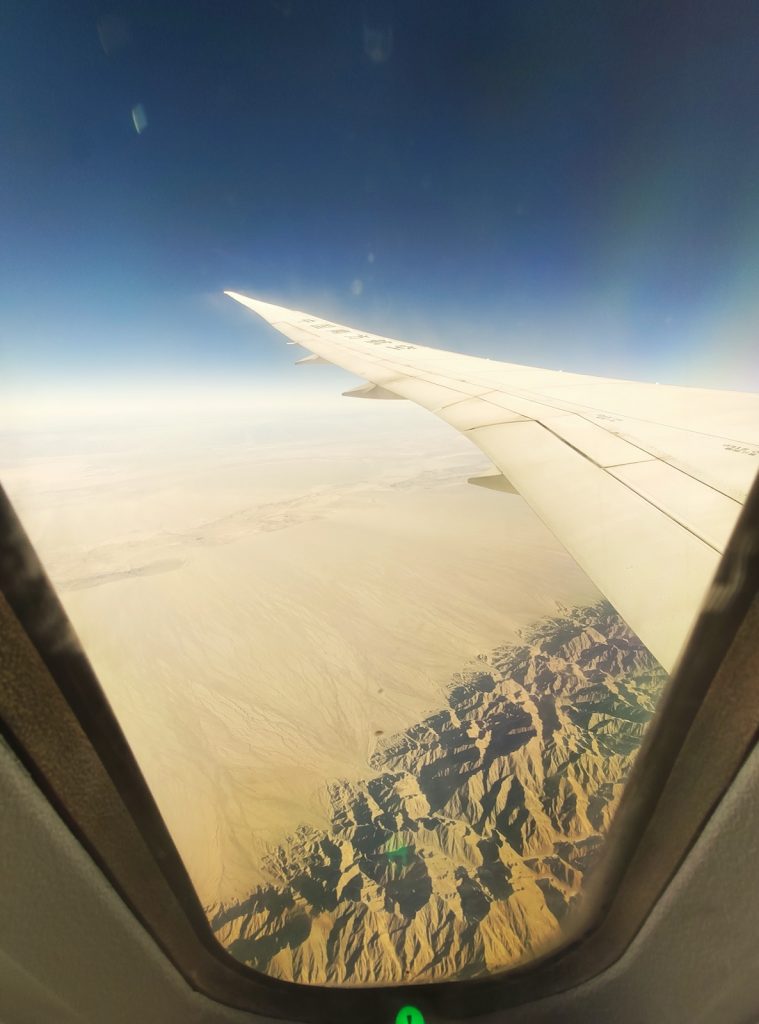
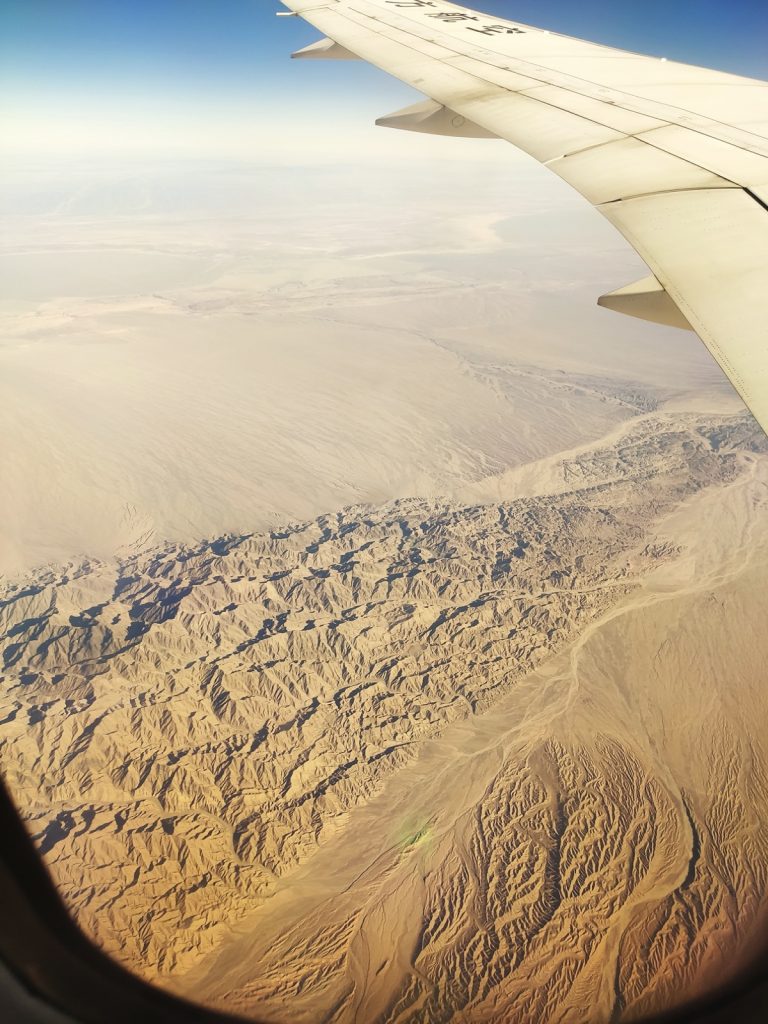
Provocations and intimidation attempts
Exposed. So when I sat down, the young policeman started moving one step to the left, one step to the right, right in front of my face. Accompanied by a big grin. Not more of a distance than 20cm were missing from his police belt to the tip of my nose. He placed his right hand impressively on his gun, his left hand casually hung between the taser and the baton. I didn’t take much notice of this intimidating attempts – a little later he turned away.
After having waited for around ten minutes, he started sitting really close to me, staring at me for a long time. Grinning again. I could even hear his grinning. I just smiled, shook my head, and stared at the floor again. The immature ego of a Chinese police officer at a specific level of adolescence was just of little interest to me. Until he asked me to give him my smartphone. I was surprised. I didn’t want to give him my phone, but who knows which laws apply in China. Probably a gray zone. In any case, I couldn’t have violated local rules because my smartphone was in my handbag all the time and I would have never imagined photographing the grey zone in front of me.
Human rights violation: Violation of my privacy
But because I didn’t want to have any further trouble, I handed it to him. After a quick appraisal, he suddenly shouted something in Chinese, which must have meant: „Unlock!“ I wished my interpretation was wrong. But two concrete hand gestures afterwards his command of intervening my privacy was undisputed. I was horrified but had to make a quick decision. How far the Chinese executive could go if I resist? Quickly I looked around. No witnesses. No cameras in this half room. In theory, he could have said that I pushed him. And defending yourself against the accusation of obstructing a police officer in the performance of his duty does not necessarily sound encouraging in China. I was exposed to the situation and forced to unlock my smartphone.
The young policeman started to check my entire photo gallery without any scruples. Every photo. Each video. He looked into each album. All my archives from the past few months. I felt terrible. Humiliated. As if someone had stripped me naked. The fact that I had not saved any intimate media from others and myself did not change the fact that this was a violation of Article 12 of the United Nations’ Universal Declaration of Human Rights, in particular the unjustified state invasion of privacy. He looked through my entire media gallery, but he still wasn’t finished. Later he was interested in various folders, in which he looked at all my stored documents thoroughly, like in a museum exhibition: contracts, passwords, memos, invoices. Everything. Always accompanied by a malicious grin in his face. Finally, he even went into my internet browser and checked my cache and entire search history.
I was shocked. Helpless. Instead of giving me my smartphone back after his power demonstration, provocatively he put it next to his armed police belt. In such a specific way that it was within my reach, but at the same time signifying you shouldn’t even think of reaching for it. Then he grinned again. 20 minutes must have passed when a senior officer entered the half-room. He saw my smartphone lying next to the young policeman and immediately asked him to give it back to me immediately. But the humiliation had already happened. Then I was called to get up and come.
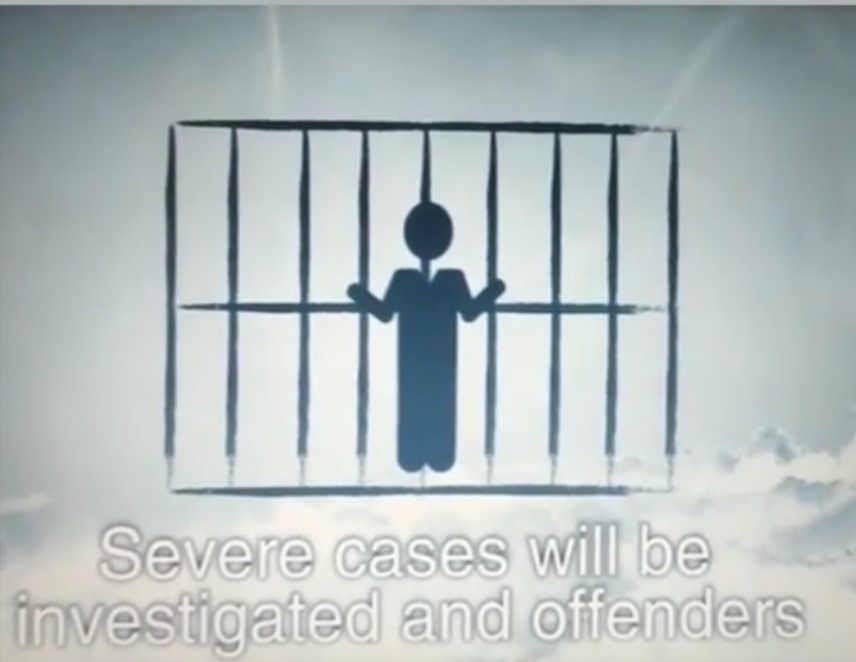
Image of a criminal
Deprivation of liberty. Instead of just turning left five meters where my passport was taken from me, we turned right. And suddenly I was guarded by five police officers. Who would have thought? Two went in front of me, two behind me. The senior police officer next to me. Nobody spoke or explained anything to me or answered me. After a while we came to the baggage claim. Finally I could see now the other passengers waiting. All Chinese. And they saw me. About 250-300 people were staring at me as if I was a serious criminal.
The young police officer escorted me to a specific place at the luggage belt where I had to wait in a specific body position for my backpack. After a few minutes I just wanted to turn my head to the left, when he yelled at me. I also had to refrain from that. At this part I want to remind you, just briefly, that I am simply on my way home from Bangkok to Vienna and should only have a six hour stopover in Urumqi to catch my flight with the same airline.
Three eggs in an airport hideaway
There! My luggage is coming. As expected, I had to empty my entire backpack and let it check from officials. A routine check. When everything was okay with it, I expected to get my passport now. On command I followed the five policemen. The only strange thing that I recognized was that we were going in the opposite direction of the other passengers. Back through an empty hall. Through the next. With the elevator to another floor. Another hall. Another elevator. Hall again. Until we reached a police station after about 15 minutes, where 30-40 police officers were waiting around. What would happen now.
Again I was brought into a half-room with simple partition walls. Before that, however, I had to leave my luggage outside. I was ordered to sit down at the table. To wait there. I looked around. This half-room was larger and better equipped. Cupboards were filled with bulletproof vests, helmets and truncheons. In contrast, there were also sofas and even an artificial waterfall. It looked like a police lounge. Video-monitored. Less than five minutes later the senior officer came in. This time he went straight up to me and held something round in his hands that I should take. And now I really couldn’t believe my eyes: eggs. Three eggs! A loud laugh came out of me. I couldn’t help it. The senior officer remained silent and disappeared. What should I do with three eggs? Well, let’s test first with a twist whether they are raw or cooked. Aha, so they were cooked.
Police custody in China
In the same moment the officer came back in again. This time with a lunch box and water. Put both on the table in front of me and disappeared. Without saying a word again. I looked inside: rice with chicken, vegetables, peanuts and chili sauce. Looked delicious. At first I hesitated a little. But soon I started to peel the eggs and eat my Chinese lunch menu. A little later two new police faces came in. I didn’t dare to ask if they could bring me coffee and cake as well to complete my menu. They placed two chairs in front of me – one to the left and one to the right. Mounted a mini camera on their chest, sat down, turned on the cam and watched me eating. All right. So the lunch menu meant that I would be stuck here for longer.
Whether two minutes or two hours, even missing my flight back to Austria and having to stay here in China for a while – everything seemed to be a possibility at the moment. I was not informed about anything. The whole time. Nobody spoke. Nobody answered. At least my question of whether or not I’m allowed to get something from my luggage was answered with a head shake by the policemen. Also the question if I’m allowed to sit on the sofa next to me after the long flight and meanwhile 30 hours without sleep.
No. Nothing. I had to stay on that chair. Only toilet way was allowed. Under the supervision of Chinese state police. I stared at the white wall without any thoughts and fell asleep. By the way, sleeping is not that easy on a simple chair. But due to my tiredness I made an hour. I saw that later on the wall clock. When I woke up, the police also slept, their breast cameras still had the red flash light on that reliably recorded every movement I made. The rest of the time I spent with my eyes half open and half closed. Until the senior officer suddenly came in again.
Discharge after five hours
I should get up immediately and come, symbolized by appropriate gestures. I looked at the clock. I spent more than 3 hours on this chair in front of the two police guards. Completely exhausted I was led to my luggage. In the meantime I really didn’t care about anything any more. Once again, accompanied by the police, we went back through the huge airport, down a few floors, through several halls. But this time we just passed the baggage claim like all the other passengers three hours ago. We went through the entrance hall of the airport and finally to the check-in desk of my airline „China Southern“.
Suddenly everything got organized within a few minutes. I got my plane ticket to Vienna. I got my passport. I checked in my luggage. I was allowed to pass the security check. And my police escort disappeared. Completely uncomplicated. Now I was in the transit area, as a matter of fact. I went to the gate and I saw Austrians again.
Possible Reasons
Why did it all happen? It was probably an incredibly complex structure of several bizarre factors. At the end of 2019 China hit the headlines worldwide due to the suppression of Muslim Uyghurs and in relation to that suspected criminal camps. I was surprised that I was the only foreigner on the flight from Bangkok to the Uyghur capital Urumqi at that time, probably it made me suspicious for Chinese.
The fact that the airline „China Southern“ – in contrast to my outward flight – did not want to check through my luggage in Urumqi this time and as a consequence sends their passenger to the Chinese border control without holding a visa is a grossly negligent conduct. It was very strange that Chinese authorities issued a 24-hour visa during my stopover at Urumqi airport on my way from Vienna to Bangkok a few weeks ago, and when I returned, they didn’t, when I really needed it. At the passport control, the police officer was probably overchallenged and therefore unable to interpret an everyday’s onward flight correctly.
I have no explanation for the serious encroachment to my privacy and freedom without having violated any legal or moral rules. This airport adventure was still positive: when I landed in Vienna, I felt like a free person again and for the first time I could realize how comforting it is to live in a constitutional democracy that protects and fully respects the human rights of its citizens.


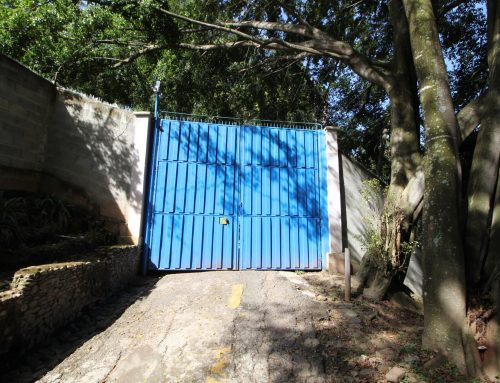
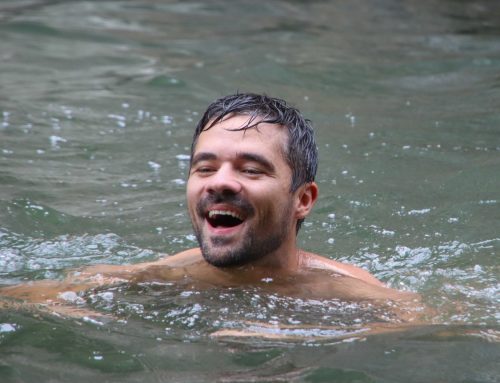
Leave A Comment